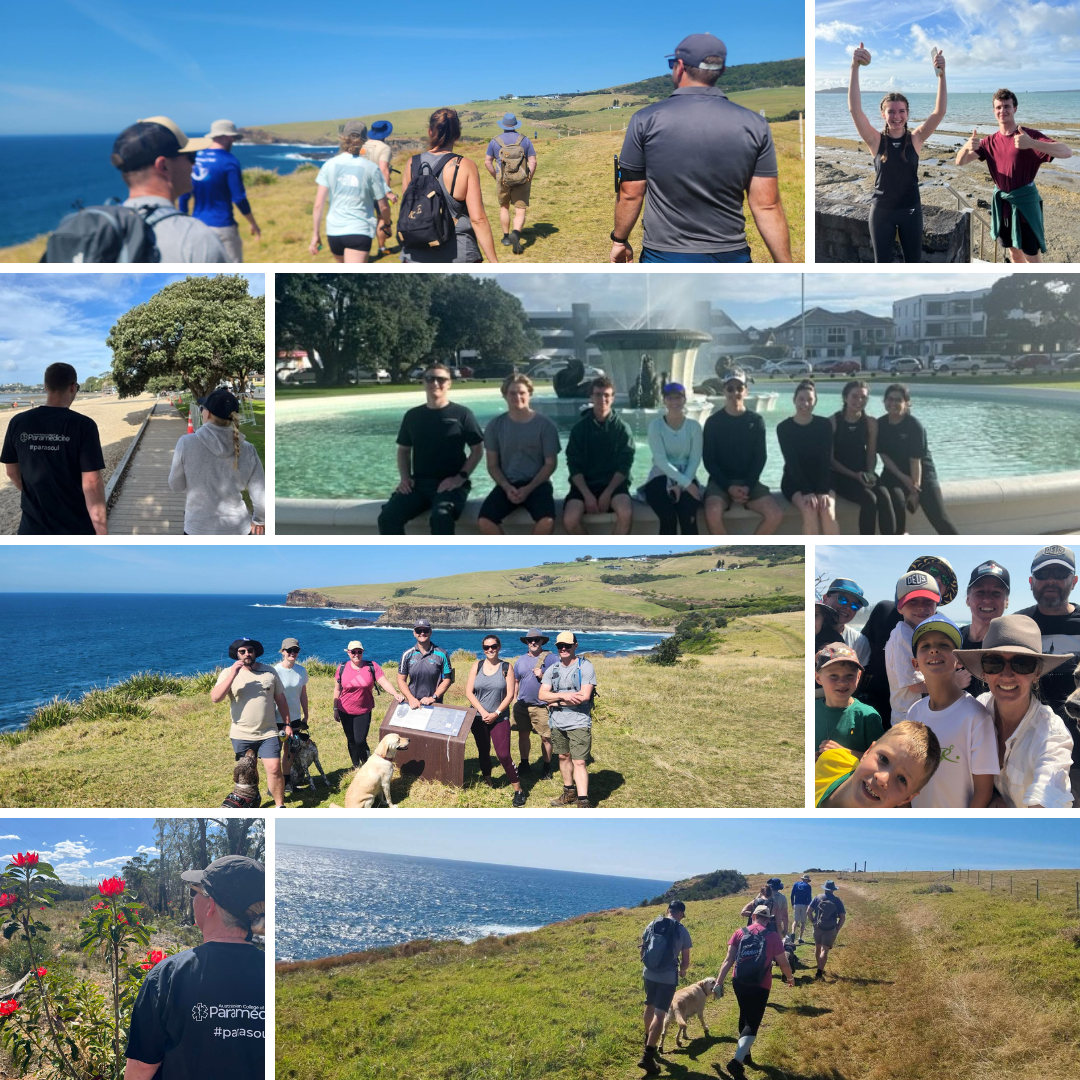Supporting paramedic mental health and wellbeing has long been a College priority, and in October members of our Paramedic Wellbeing Working Group stepped up to raise awareness and enlist support for the Black Dog Institute’s annual One Foot Forward initiative.
One Foot Forward gives people the opportunity to walk, run or roll in solidarity for the 1 in 5 Australians who experience symptoms of mental illness every year. It’s a particularly pressing issue for paramedics, who are reported to have higher rates of mental health problems, psychological distress, depression, anxiety, burnout, post-traumatic stress and higher rates of suicidal ideation than the general population as a result of prolonged exposure to stress and repeated exposure to critical incidents.
Commemorating Mental Health Month, the event ran throughout October and enabled people to show solidarity with friends, family, and colleagues with lived experience of mental illness. It was also a great way of encouraging people to improve their own health and wellbeing through exercise and social connections by being part of a wider community working towards a common goal of raising funds to support mental health treatment, education, and research.
Paramedic Wellbeing Working Group members Clare Sutton (NSW), Sandy MacQuarrie (QLD), Kelly-Ann Bowles (VIC), Jacquie Willis (NSW), Tahlia Harper (VIC) and College Member Engagement Manager Alisha McFarlane (NSW) walked, ran and cycled in both Australia and Aotearoa New Zealand as part of our special #Parasoul campaign to promote the benefits of exercise on mental health and wellbeing and the importance of social connections.
“We’re proud to be able to support fundraising for the Black Dog Institute, which is a fantastic not-for-profit organisation that does so much in relation to mental health research, education, treatment, digital services, and advocacy, especially in regard to first responders,” Ms Sutton said. “Our aims in taking part in this important initiative are to help people expand their social networks, promote healthy behaviours, and motivate people to take small steps in adopting more active lifestyles.
“It’s imperative that we prioritise the mental health and wellbeing of our paramedic community. Mental resilience directly affects our ability to deliver high-quality care. Exercise has been shown to have a beneficial effect on mental health, alertness, concentration, and mood, as well as reducing stress and anxiety, improving sleeps and improving physical fitness.”


Get unlimited access to hundreds of ACP's top courses for your professional development.
Join Now